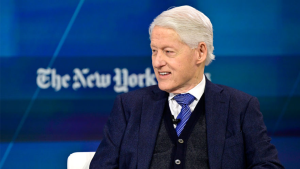Reeves Unveils Sweeping Economic Reform: UK Budget Prioritizes Public Services While Raising Taxes
Britain’s Economic Reset: Labour’s First Budget in 14 Years Charts New Financial Course
In a watershed moment for Britain’s economic direction, Chancellor of the Exchequer Rachel Reeves has introduced a comprehensive budget plan that marks a decisive shift in the nation’s fiscal priorities. The ambitious proposal, representing the first Labour budget in 14 years, outlines substantial increases in public spending paired with higher taxes that will impact both wealthy citizens and the middle class. This pivotal economic blueprint arrives at a critical juncture for the UK economy, which has struggled with sluggish growth, deteriorating public services, and mounting infrastructure challenges in the post-Brexit, post-pandemic landscape.
“We must be honest with the British people about the scale of the challenge we face and the difficult decisions required to fix the foundations of our economy,” Reeves declared to a packed House of Commons, her voice steady as she detailed the government’s vision for economic revival. The Chancellor emphasized that years of underinvestment have left critical public services in a precarious state, requiring immediate and substantial financial intervention. The budget proposes billions in additional funding for the National Health Service, which has faced unprecedented pressures with record-breaking waiting lists and staffing shortages. Education, housing, and transportation infrastructure also feature prominently in the spending increases, reflecting Labour’s campaign promises to reinvest in public services after years of austerity measures under Conservative leadership.
Tax Reform: Balancing Revenue Generation with Economic Growth
The more contentious aspect of Reeves’ budget involves its taxation framework, which represents a notable departure from previous fiscal approaches. The Chancellor has introduced a series of tax measures aimed at what she termed “those with the broadest shoulders,” including increased capital gains taxes, adjustments to inheritance tax thresholds, and new levies on high-value properties. However, the budget’s reach extends beyond the wealthy, with middle-class taxpayers facing changes through modified income tax brackets, revised pension contribution allowances, and adjustments to National Insurance contributions. Economic analysts have noted that these measures reflect Labour’s ideological commitment to reducing inequality while raising necessary revenue to fund ambitious spending plans.
Financial experts offer mixed assessments of the Chancellor’s approach. “This budget represents a calculated risk in the current economic climate,” explains Dr. Eleanor Harrington, senior economist at the Centre for Economic Analysis. “The additional tax burden could potentially dampen consumer spending and business investment in the short term. However, if the increased public spending effectively addresses structural economic weaknesses and improves productivity, the long-term benefits could outweigh the immediate costs.” Business leaders have expressed concerns about potential impacts on growth and investment, with the Confederation of British Industry warning that certain tax measures could “undermine the UK’s competitiveness at a time when attracting international capital remains crucial.” Meanwhile, advocacy groups representing lower and middle-income families have generally welcomed the spending increases while expressing caution about the broader tax implications.
Public Service Revival: Addressing Critical Infrastructure and Service Gaps
At the heart of Reeves’ budget lies a fundamental commitment to rebuilding public services that have faced significant constraints in recent years. The NHS will receive an additional £8.3 billion annually, with earmarked funds for reducing surgical waiting lists, expanding mental health services, and addressing staffing shortages through improved recruitment and retention programs. Education funding includes substantial investments in school infrastructure, teacher training, and expanded early childhood programs in disadvantaged communities. The Chancellor also announced a major social housing initiative, committing to the largest public housing construction program in over three decades, with 150,000 new affordable homes planned over the next five years.
Transportation infrastructure features prominently in the spending plans, with significant allocations for rail modernization, road improvements, and public transit systems outside London. “For too long, our infrastructure has suffered from short-term thinking and inadequate investment,” Reeves stated, highlighting how these capital projects would not only improve daily life for millions but also create thousands of skilled jobs across the country. Climate initiatives also received substantial funding, with green energy projects, home insulation programs, and electric vehicle infrastructure described as both environmental necessities and economic opportunities. Local government leaders, who have faced severe budget constraints for over a decade, cautiously welcomed the funding increases while noting the enormous backlog of needs across communities.
Economic Context: Navigating Global Uncertainties and Domestic Challenges
The Chancellor’s budget arrives against a backdrop of complex economic challenges, both domestic and international. The UK economy has experienced anemic growth compared to other G7 nations, with productivity stagnation and regional disparities persisting despite various policy interventions. Global factors, including ongoing supply chain disruptions, energy market volatility following the Russia-Ukraine conflict, and economic slowdown in China, further complicate the economic landscape. Inflation, while moderating from recent peaks, continues to pressure household budgets and business planning. The Office for Budget Responsibility (OBR) has revised its growth forecasts downward for the coming year, citing these combined headwinds.
Interest rates, while expected to decrease gradually from their current elevated levels, continue to impose significant borrowing costs on the government, limiting fiscal flexibility. Reeves acknowledged these constraints directly in her speech, stating that “fiscal responsibility remains non-negotiable” despite the spending increases. The budget maintains a commitment to specific debt and deficit targets, though critics argue that these have been recalibrated to accommodate the new spending priorities. The Chancellor emphasized that investments in infrastructure and public services represent productive spending that would strengthen economic fundamentals rather than simply adding to government liabilities. Financial markets reacted with measured caution to the announcements, with sterling experiencing modest fluctuations and government bond yields rising slightly as investors assessed the implications for future borrowing.
Political Dimensions: A New Economic Consensus or Partisan Battleground?
The political ramifications of Reeves’ budget extend beyond fiscal policy, potentially reshaping the economic debate in British politics for years to come. Opposition figures immediately critiqued the proposals, with Conservative representatives characterizing the tax increases as “punitive” and warning of potential damage to economic confidence. “This budget signals a return to tax-and-spend policies that have failed Britain before,” argued the Shadow Chancellor in response. However, polling indicates that public opinion may be more receptive to investment in services after years of visible deterioration in healthcare, education, and infrastructure quality. Recent surveys suggest majority support for higher taxes specifically directed toward improving public services, though questions remain about which demographic groups should bear the additional burden.
For Prime Minister Keir Starmer’s government, this budget represents a critical test of Labour’s economic credibility after years in opposition. The administration has emphasized pragmatism over ideology, framing the fiscal changes as necessary responses to inherited challenges rather than ideological preferences. “This budget is not about left or right,” Reeves insisted in her closing remarks. “It is about moving forward after years of stagnation and decline in our public realm.” Whether this framing resonates with voters and economic stakeholders will significantly influence the government’s political capital moving forward. As implementation begins and real-world impacts emerge, the true legacy of this landmark budget will take shape, potentially establishing a new economic consensus or becoming another battleground in Britain’s increasingly polarized political landscape.










